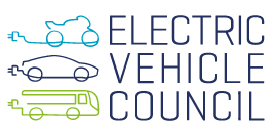
State policies
State and territory governments have a important role to play in accelerating the transition to electric vehicles. The Electric Vehicle Council sent a policy survey to each state and territory government, to detail their current commitments to the electrification of road transport.
The Electric Vehicle Council identified three main areas of policy that governments could use to accelerate uptake of electric vehicles: overarching EV policies, consumer policies, and industry support policies and asked Governments about their commitments to them.
The table below summaries the overarching EV policies:

National policy
In stark contrast to most OECD countries, there remains no national electric vehicle policy or strategy in place in Australia.
In January 2019, the Senate Select Committee on Electric Vehicles released its final report after a six-month inquiry, chaired by then Senator Tim Storer. The Inquiry represents the most significant action to date on EVs at the national level and the report has provided a non-partisan evidence base to inform and support the development of national electric vehicle policies.
The Senate Committee concluded that widespread uptake of electric vehicles would deliver significant economic, environmental and health benefits to Australia. It also identified that electric vehicles would create opportunities for growing industries such as: charging infrastructure manufacturing and installation; battery manufacturing, recycling, and repurposing; related mining and processing activities; and electric vehicle research and development.[1]

